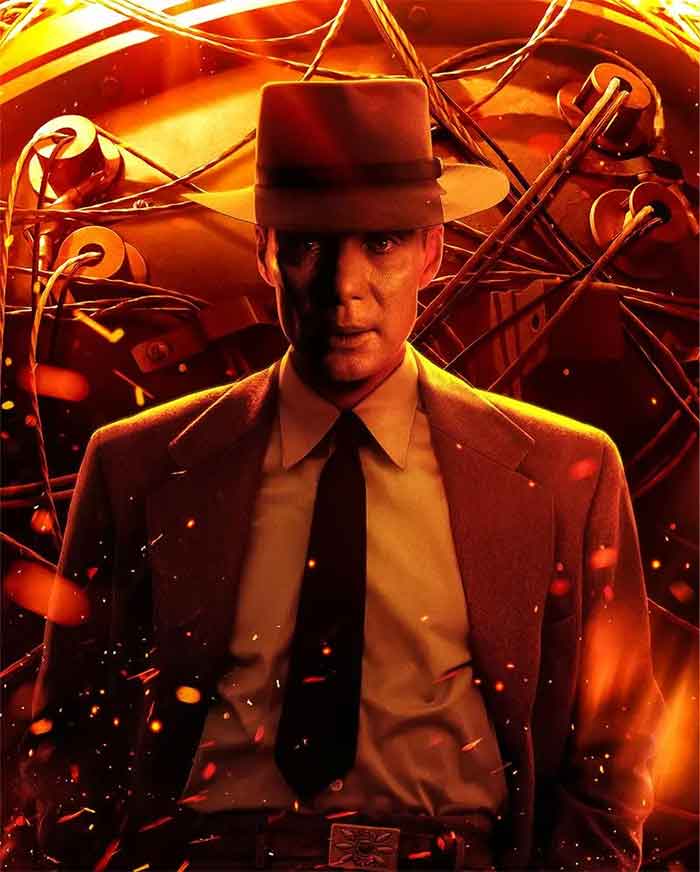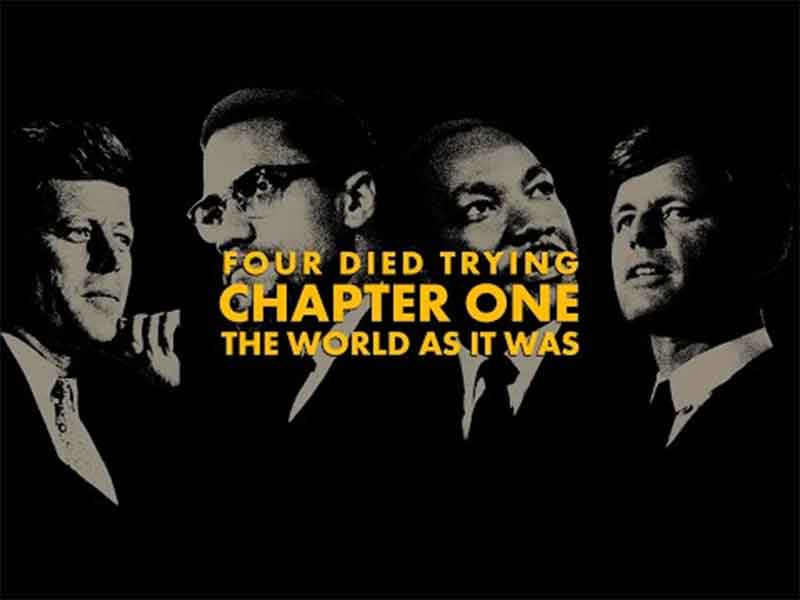
Wars change the course of human history – not only the present and the future, but also the past. The consequences of the two major world wars of the twentieth century are not unknown to us. One of the most infamous instances of the destruction and degradation of humanity took place, ironically, with what essentially brought an end to the Second World War – the bombing of Hiroshima and Nagasaki by the United States in 1945.
The repercussions of creating nuclear weapons in this context and the justifications of their practical use have been major topics of discussion for almost eight decades now. Christopher Nolan’s 2023 film Oppenheimer rekindles this debate using cinematic and generic conventions, and provides a unique perspective of looking at the philosophy of warfare.
Veteran screenwriter Paul Schrader, in a Facebook post, called Oppenheimer “the best, most important film of the century.” While this is entirely his personal opinion, the latter part of his statement would be hard to disagree with. Oppenheimer is, indeed, one of the most important films of the century in several aspects – technical, formal, cultural, and political.
The film is based on the 2006 Pulitzer Prize-winning book American Prometheus: The Triumph and Tragedy of J. Robert Oppenheimer, written by Kai Bird and Martin J. Sherwin, focusing on the life of theoretical physicist J. Robert Oppenheimer, the “father of the atomic bomb.” Nolan’s adaptation depicts the development of the Manhattan Project and the proceedings of Oppenheimer’s security hearing of 1954, blending the genres of the historical drama and the thriller, along with Nolan’s characteristic finesse.
Oppenheimer is not a forgotten personality, but Nolan brings him back into the present collective memory, focusing more on his psyche and conscience than his scientific prowess. Doing so, he opens up the possibilities of getting to know the man more intimately. This becomes important for illustrating the dissonance between the “creator” and the “creation,” and for understanding how politics determine the most decisive moments of human history. This film is neither a glorification of J. Robert Oppenheimer nor a celebration of USA’s victory over the Axis powers, but it is rather a strong critique of the politics of warfare.
Nolan chooses to dramatise specific events from the pages of history, and he uses film language to do so. We get to look at the world from a different viewpoint, most strikingly, through the eyes of the creator of the atomic bomb. We enter into Oppenheimer’s mind and share his emotions. We identify with his feelings – his fears, his anxieties, his affectations and his confusions – they become a part of us. Cillian Murphy brings Oppenheimer to life, delivering one of the best acting performances in the history of cinema. In fact, the entire cast delivers an incredibly convincing performance. Robert Downey Jr. is impeccable in his portrayal of Lewis Strauss. Emily Blunt also stands out in her role as Katherine Oppenheimer.
The film is dialogue-heavy, but its most intense moments are expressed using pure visual language. Hoyte van Hoytema’s cinematography makes every moment look grand and feel important. Every frame of the film is spectacular in every sense of the word. Using both colour and black-and-white scenes in the same film is not something too out-of-the-ordinary, as filmmakers have been using this technique for narrative purposes for several decades now. Nolan, however, uses it to make a distinction between two subjective points of view – titled “Fission” and “Fusion” – colour for Oppenheimer’s, and black-and-white for Strauss’s. This also adds an additional layer of subtlety to the scenes’ emotional potency.
Jennifer Lame’s editing makes the film’s visual pace congruent with its narrative pace. The quick cuts and transitions serve the dramatic aspect of the film, in order to generate a sense of urgency. But the long takes in the film are what really leave a lasting impression on the viewer. Most of these long takes deal with Oppenheimer’s thoughts and internal conflicts.
Nolan has meticulously structured the screenplay, where every shot, every scene, every cut, every camera movement serves a purpose in storytelling. There is also the effective use of montage, which has become a distinguished feature of Nolan’s films.
The explosion of the bomb was one of the most anticipated scenes in the film, proven by all the buzz it had generated on social media after Nolan announced that he would not use CGI in the film but would only use practical effects. The explosion that is depicted in the film is that of “The Gadget,” the test bomb, and not the ones that were dropped in Hiroshima and Nagasaki. This choice is justifiable, because the film is not simply about the application of the atomic bomb, but about the larger consequences of its creation.
The detonation is shown from Oppenheimer’s perspective. It is not presented as a typical countdown scene, and is not a strictly “realistic” depiction, but rather a psychological one. Specific scenes from films and TV shows gain some sort of autonomy in popular culture, and get regarded as iconic; the explosion scene in Oppenheimer definitely deserves to be ranked as such. Oppenheimer’s anxiety in this scene can be felt viscerally, as the creator looks at his creation and realises what he has unleashed into the world.
In the most heartrending moment of the film, as Oppenheimer feigns satisfaction with USA’s victory, he is haunted by visions of death and destruction that his creation has brought upon Hiroshima and Nagasaki. Instead of seeing the physical bombing of Japan, we get to see its psychological impact on the man who feels (and is) responsible for this. This sequence is one of the most harrowing in the history of cinema. Aesthetically, it is the perfect union of all the elements of film form; it reaches its full potential with the help of sound design and music. Ludwig Göransson’s score makes watching the film an almost transcendental experience.
The ending of Oppenheimer is particularly strong and moving. Instead of being confusing or debate-inducing like Tenet or Inception, Oppenheimer’s ending is poignantly powerful; it feels like the beginning of another fateful story – one that we, the spectators, are a part of. In the final moments of the film, all the elements of film form come together to create what is, in my opinion, one of the greatest ending scenes of all time. In this day and age of streaming services and the popularity of smaller screens, if there is one film that is meant to be watched in the movie theatre, it is Oppenheimer.
We live in a world fuelled by hatred, malice, and distrust. The arms race is thus inevitable, with the looming threat of nuclear warfare endangering all life on earth. But this has been universally accepted as a “normal” way of existing.
Christopher Nolan’s Oppenheimer is not only the reenactment of a historic event, but also, in several ways, a cautionary tale. No matter what form any conflict takes, no matter what it is based on – geographical location, political ideology, religious belief, or ethnic identity – it only pits one body of flesh and blood against another. As long as such separatist ideals exist in the world, weapons of mass destruction will continue to be made, each greater and more dangerous than the other. But the fact is that the same weapons, which are developed for the sustenance of a particular group, destroy everything on the planet, irrespective of race, ethnicity, colour, and identity.
Aditya Modak is a film scholar, author and filmmaker from Tripura.















































